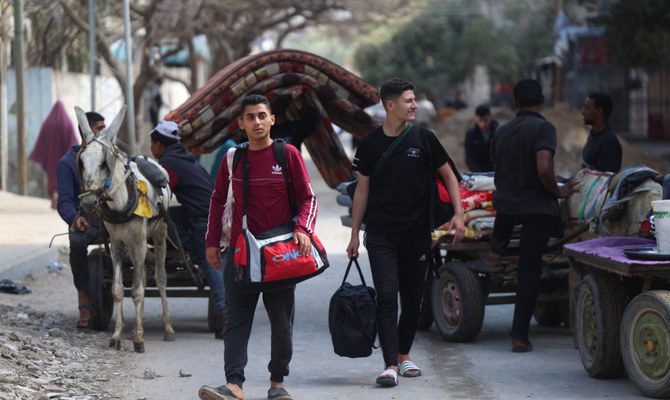
Six months since Iraqi forces seized Iraq’s second city Mosul from ISIS, human remains still rot in front of the Al-Nuri mosque.
The building, denuded of its iconic minaret and largely reduced to ruins by the fighting, was the site of the only known public appearance by ISIS leader Abu Bakr al-Baghdadi.
Mosul residents have gone from euphoria at the citys "liberation" after three years of militant rule to uncertainty, Agence France Presse reported.
Iraq forces defeated ISIS in Mosul in July 2017 after months of intense urban battles that reduced the historic Old City to ruins.
Pounded by international coalition air strikes and constant shell fire by the militants, most of Mosuls residents fled. Some never made it out.
Asma Mohammeds father and husband were killed in an air strike then hurriedly buried, like several of their neighbors, in improvised cemeteries on a vacant strip of land.
Iraqi authorities "say they need to investigate before issuing death certificates", she said, sitting in her modest Old City house, itself damaged during the violence.
She is one of many Mosul residents who count family members among those killed in air strikes.
The United States-led coalition against ISIS in Syria and Iraq has admitted to killing 817 civilians over three years of battling the group.
But according to sources in Mosul, some 2,000 civilians were killed in coalition air strikes and fighting in the city alone.
Since her parents died, Asma and her two children have survived day-to-day on donations from friends and neighbors.
When she thinks of the future, she begins to cry.
Only one other family has returned to this part of the Old City -- that of Ansam Anwar, 30, who headed back just days ago with her husband and their five children.
In small whitewashed rooms around the inner courtyard of their house, the cold is biting. The utilities have been cut off and electricity meters torn from the walls.
Ansams husband, a laborer, has yet to find work in the largely deserted Old City.
"There is still no water or electricity, my children are still deprived of school. Even the smell of rotting bodies continues to suffocate us," Ansam said as she moves away dust and debris covering the ground.
Further down the street, Abu Qutayba al-Attar, 59, walks through the once crowded alleys of the historic market, a traditional kuffiyeh scarf around his head and a long robe reaching his feet.
His fathers shop, where he spent his days "from the age of six onwards", was destroyed in the carnage.
After the fighting reached his neighborhood a year ago, he said he remained "shut up at home in a state of depression".
But now he has started working to rebuild the shop at his own expense.
The alley outside is partially blocked by wooden furniture.
Now that "security has returned", the economy must follow, he insisted.












